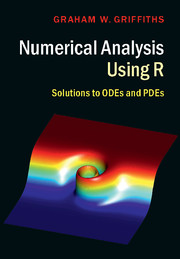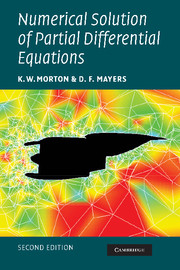Solving ODEs with MATLAB
This book is a text for a one-semester course for upper-level undergraduates and beginning graduate students in engineering, science, and mathematics. Prerequisites are a first course in the theory of ODEs and a survey course in numerical analysis, in addition to specific programming experience, preferably in MATLAB, and knowledge of elementary matrix theory. Professionals will also find that this useful concise reference contains reviews of technical issues and realistic and detailed examples. The programs for the examples are supplied on the accompanying web site and can serve as templates for solving other problems.
Each chapter begins with a discussion of the "facts of life" for the problem, mainly by means of examples. Numerical methods for the problem are then developed, but only those methods most widely used. The treatment of each method is brief and technical issues are minimized, but all the issues important in practice and for understaning the codes are discussed. The last part of each chapter is a tutorial that shows how to solve problems by means of small, but realistic, examples.
- Contains a tutorial on the practical solution of ODEs with many realistic examples plus development of the theory of the most important methods as they are used in practice
- Complete MATLAB programs can be used as templates for solving problems
- Discusses delay differential equations, which are especially important for biological models
Reviews & endorsements
"The authors provide an excellent treatment of the fundamentals for solving ODEs using MATLAB. Their vast experience from research, the solution of real problems, and the teaching of this material is evident throughout the book." Mathematical Reviews
"...a very useful book to those who are looking to expand their MATLAB experience." Amanda Bligh, Product Design Engineer, Hasbor, Inc.
Product details
April 2003Paperback
9780521530941
272 pages
235 × 191 × 15 mm
0.47kg
35 b/w illus.
Available
Table of Contents
- 1. Getting started
- 2. Initial value problems
- 3. Boundary value problems
- 4. Delay differential equations.










